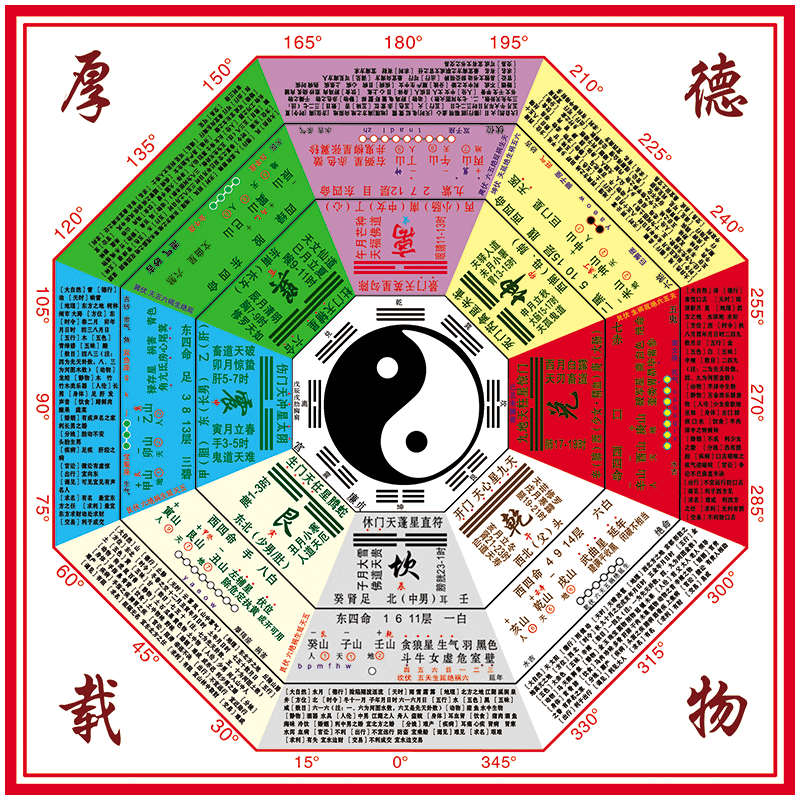Book of Change . net
人無遠慮,必有近憂
學而不思則罔,思而不學則殆
三人行,必有我师焉。择其善者而从之,其不善者而改之。
學而不思則罔,思而不學則殆
三人行,必有我师焉。择其善者而从之,其不善者而改之。

Introduction to Book of Change
Book of Change, also known as the Yi Jing, is not merely a cornerstone of ancient Chinese philosophy; it's a living embodiment of wisdom that continues to offer guidance in our modern world. Originating from the Zhou Dynasty, this venerated text utilises a complex system of 64 hexagrams, each composed of six lines, to offer profound insights. These hexagrams, understood through divination practices involving yarrow sticks or three coins, represent various states and dynamics of human existence. The I Ching serves as an oracle, a consultant for those seeking wisdom in the face of life’s myriad uncertainties. Its pages are not just about foretelling the future; they delve into the deeper rhythms of the cosmos, reflecting the Taoist and Confucian thought that underpins much of Chinese philosophy. Each hexagram and its changing lines – either broken or unbroken, symbolising yin and yang – are accompanied by rich commentary, providing layers of interpretation that have been contemplated and expanded upon through centuries, from the Zhou to the Han Dynasty and beyond.
In Chinese, Yi means change, an eternal truth to descript the world's motion. Jing means the way or classic. So, I Ching is a classic text to expatriate inexhaustible changes. Rich philosophic viewpoints lurked in the thoughts have provided a case of guiding significance. It is a well built philosophic ideology, which is for most of the people obscure and difficult to follow. Hence there are a lot of eisegesis. After King Wen's composition and commentary, I Ching was expanded from the range of divination to science. It is said that the earliest extant I Ching was written on bamboo slips during the Warring States Period. In the Han Dynasty, I Ching inspired the Taoism to create many theories of regimen which were derived from Yin Yang, The Five Elements, Ba Gua. It was first introduced to the western world by missionary in late Ming Dynasty and explained by Germany mathematician with binary code. I Ching affected Confucianism very much and it was the foundation of Taoism. It survived the 'Burning of the books and Burying of the Scholars' Qin Shi Huang committed. Then, it could continue functioning to have impact on Tai Chi Quan (Shadowboxing), Feng Shui in architecture, Chinese Go game and many aspects in Chinese cultural.
In Chinese, Yi means change, an eternal truth to descript the world's motion. Jing means the way or classic. So, I Ching is a classic text to expatriate inexhaustible changes. Rich philosophic viewpoints lurked in the thoughts have provided a case of guiding significance. It is a well built philosophic ideology, which is for most of the people obscure and difficult to follow. Hence there are a lot of eisegesis. After King Wen's composition and commentary, I Ching was expanded from the range of divination to science. It is said that the earliest extant I Ching was written on bamboo slips during the Warring States Period. In the Han Dynasty, I Ching inspired the Taoism to create many theories of regimen which were derived from Yin Yang, The Five Elements, Ba Gua. It was first introduced to the western world by missionary in late Ming Dynasty and explained by Germany mathematician with binary code. I Ching affected Confucianism very much and it was the foundation of Taoism. It survived the 'Burning of the books and Burying of the Scholars' Qin Shi Huang committed. Then, it could continue functioning to have impact on Tai Chi Quan (Shadowboxing), Feng Shui in architecture, Chinese Go game and many aspects in Chinese cultural.
About Book of Change
